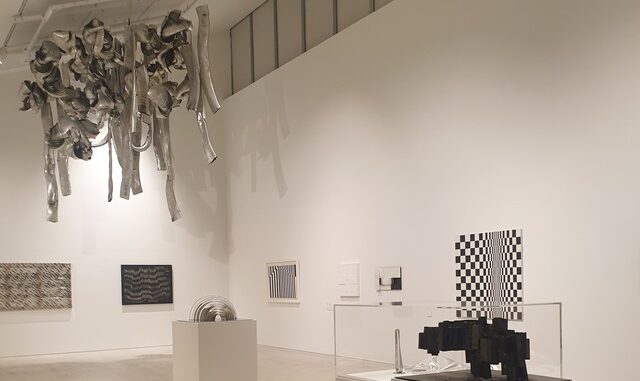
By Dan Thompson
Taking in work from Europe, Asia, Africa, and America, and including everything from brutalist sculpture to textile arts, Turner Contemporary’s new exhibition finds women wrestling with the post-1945 world.
Beyond Form: Lines of Abstraction, 1950 – 1970 includes more than fifty artists, with names we’re familiar with sitting alongside artists we might not have heard of. It includes many artists from the global majority.
All of them are broadly categorised as ‘abstract artists’ – that is, they don’t try to capture an accurate representation of something, but instead use shapes, colours, marks, and textures. But the definition is very broadly applied here. What, after all, do the natural forms of sculptor Barbara Hepworth have in common with optical illusions of painter Bridget Riley?
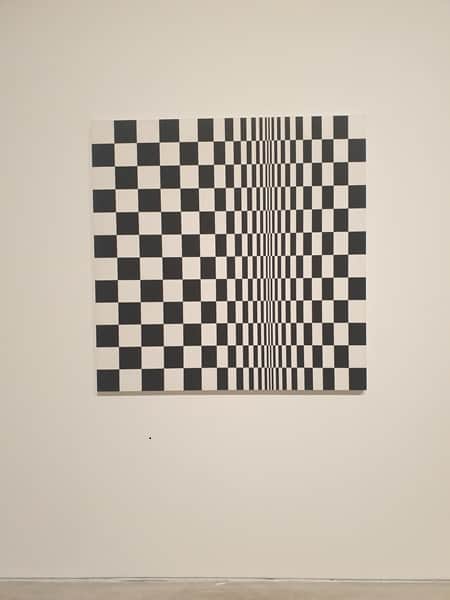
Although the real answer is ‘not much at all’, there is a logic to the curator’s choices, and the whole exhibiton – by my count, nearly 100 works – makes sense. The folding, aluminium sculptures of Brazilian artist Lygia Clark connect to Sandra Blow’s big ‘Abstract, Blue’ painting on the wall nearby. Elisabeth Frink’s bronze lump of a head sits well next to Hannah Wilke’s palm-of-your-hand-sized terracotta ‘Androgynous and Vaginal Sculptures’.

And – as long as you have a broad enough mind to accept that not all art is a copy of the vase of flowers in front of the artist – you should be able to find something that captures your interest, intrigues you, or inspires you to look at the world differently.
There are organic, natural forms, like Barbara Hepworth’s ‘Sea Form – Porthmeor’, Meg Rutherford’s ‘Quartros’, Anthea Alley’s ‘Rock’, or Ewa Parchuka’s crocheted ‘The Open Man’.
There are very industrial works, like Jean Spencer’s wood-and-PVA glue relief, Lygia Clark’a sharp-edged ‘Animals’, or Lolo Soldevilla’s constructions.

There are works that clearly felt futuristic when made, like Gillian Wise’s perspex, pegs, and thread sculpture and Bridget Riley’s 1960s Op-Art painting, next to works that feel ancient and primal, like Mona Saudi’s ‘Fertility’ and ‘Motherhood’ sculptures.
There are huge paintings – Howardena Pindell’s massive abstract or Agnes Martin’s incredible, precise, minimalist Morning from 1965. And there is craft, in Polish artist Maria Teresa Chojnacka’s dramatic ‘Chains’ made from sisal string or Faith Ringold’s textile hanging ‘Windows of the Wedding’.
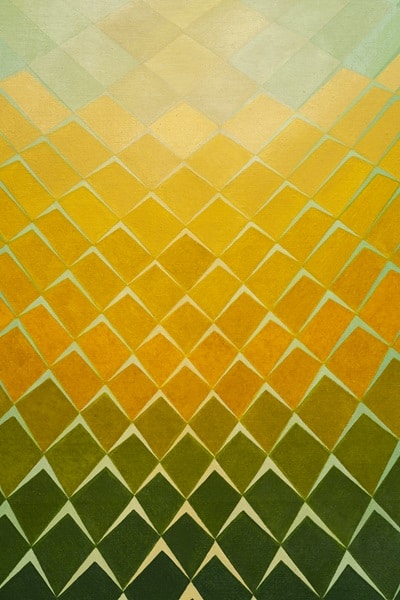
The exhibition captures a slice of a particular time, when women were starting to be treated more equally and were able to explore a new way of being in the world. It’s not the whole of that time, of course – it is only the things that made it into the gallery that’s here, and there’s no representation here of the work of women in film, performance, theatre, community art and so on. And of course, women artists are still under-appreciated and under-represented by major galleries.
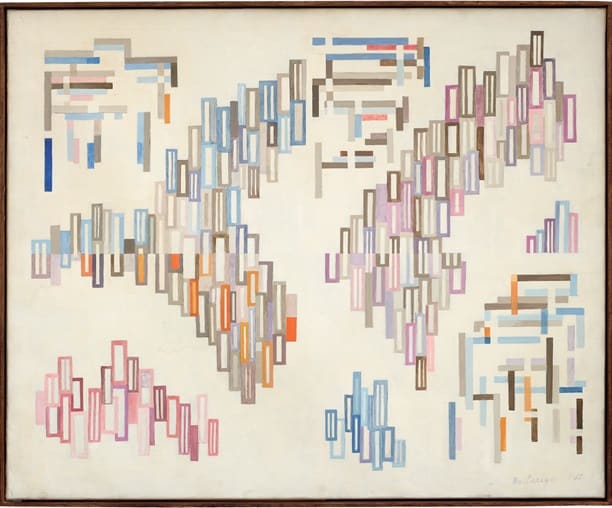
And while you can explore the exhibition on an intellectual level, see how women were pushing and pulling things in new directions, you can also just enjoy this show as a ‘Wunderkammer’, a cabinet of curiosities, full of interesting and unusual objects from around the world.
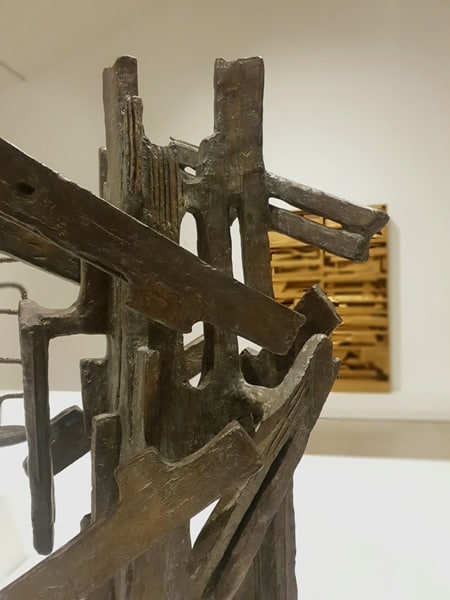
Louise Nevelson’s huge ‘Royal Tide 3’, a collection of driftwood and timber painted gold, Sheila Hick’s ‘Entrance To The Forest’, and Yuko Nasaka’s carved, drilled, and ripped sculptural painting are just incredible, wonderful physical objects.
So if you go in with an open mind, and take the time to look (in all seriousness, once you’ve been round, turn round and do the whole thing in reverse, and you’ll find something new), then in Beyond Form, you’ll find something you fall in love with.
Beyond Form: Lines of Abstraction, 1950 – 1970
Saturday 3 February – Monday 6 May , Turner Contemporary Wednesday to Sunday, 10am – 5pm

